Abstract
The distribution, activity, and generic diversity of nitrifying bacteria in a stream receiving geothermal inputs of ammonium were studied. The high estimated rates of benthic nitrate flux (33 to 75 mg of N · m−2 · h−1) were a result of the activity of nitrifiers located in the sediment. Nitrifying potentials and ammonium oxidizer most probable numbers in the sediments were at least one order of magnitude higher than those in the waters. Nitrifiers in the oxygenated surface (0 to 2 cm) sediments were limited by suboptimal temperature, pH, and substrate level. Nitrifiers in deep (nonsurface) oxygenated sediments did not contribute significantly to the changes measured in the levels of inorganic nitrogen species in the overlying waters and presumably derived their ammonium supply from ammonification within the sediment. Ammonium-oxidizing isolates obtained by a most-probable number nonenrichment procedure were species of either Nitrosospira or Nitrosomonas, whereas all those obtained by an enrichment procedure (i.e., selective culture) were Nitrosomonas spp. The efficiency of the most-probable-number method for enumerating ammonium oxidizers was calculated to be between 0.05 and 2.0%, suggesting that measurements of nitrifying potentials provide a better estimate of nitrifying populations.
Full text
PDF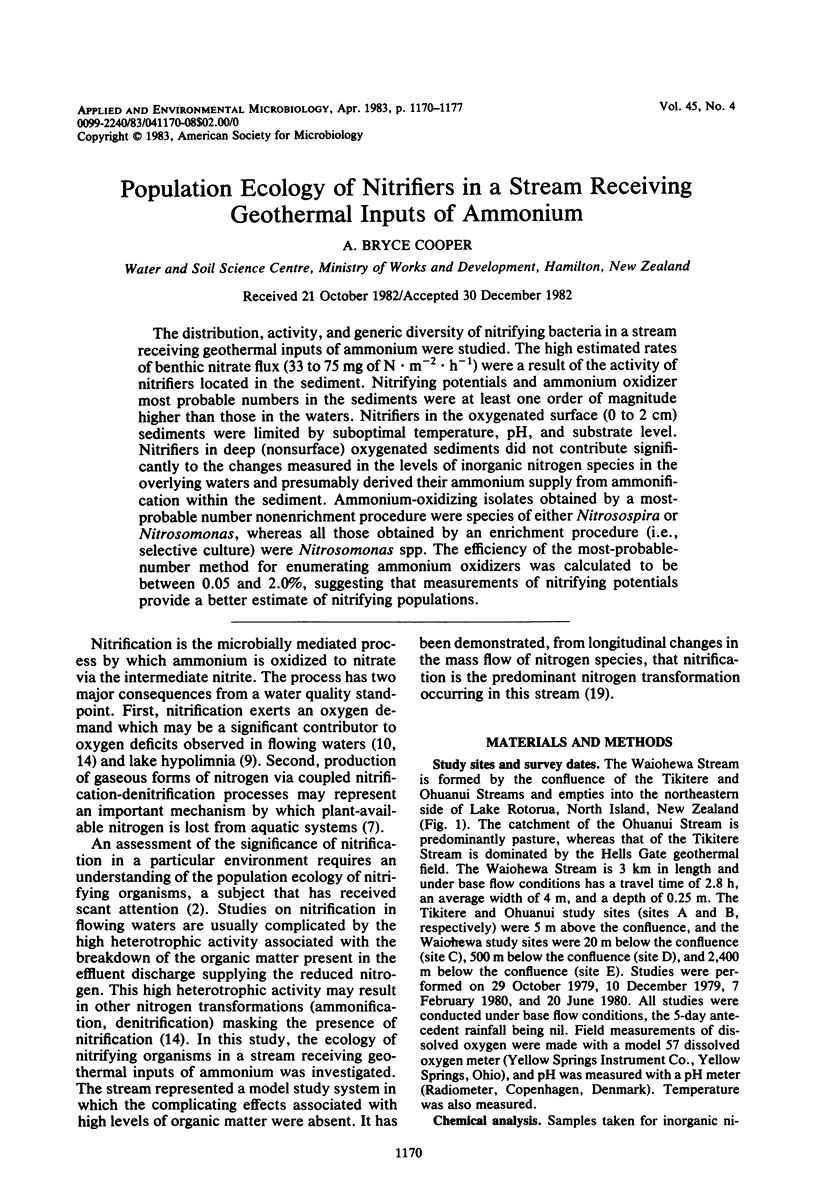
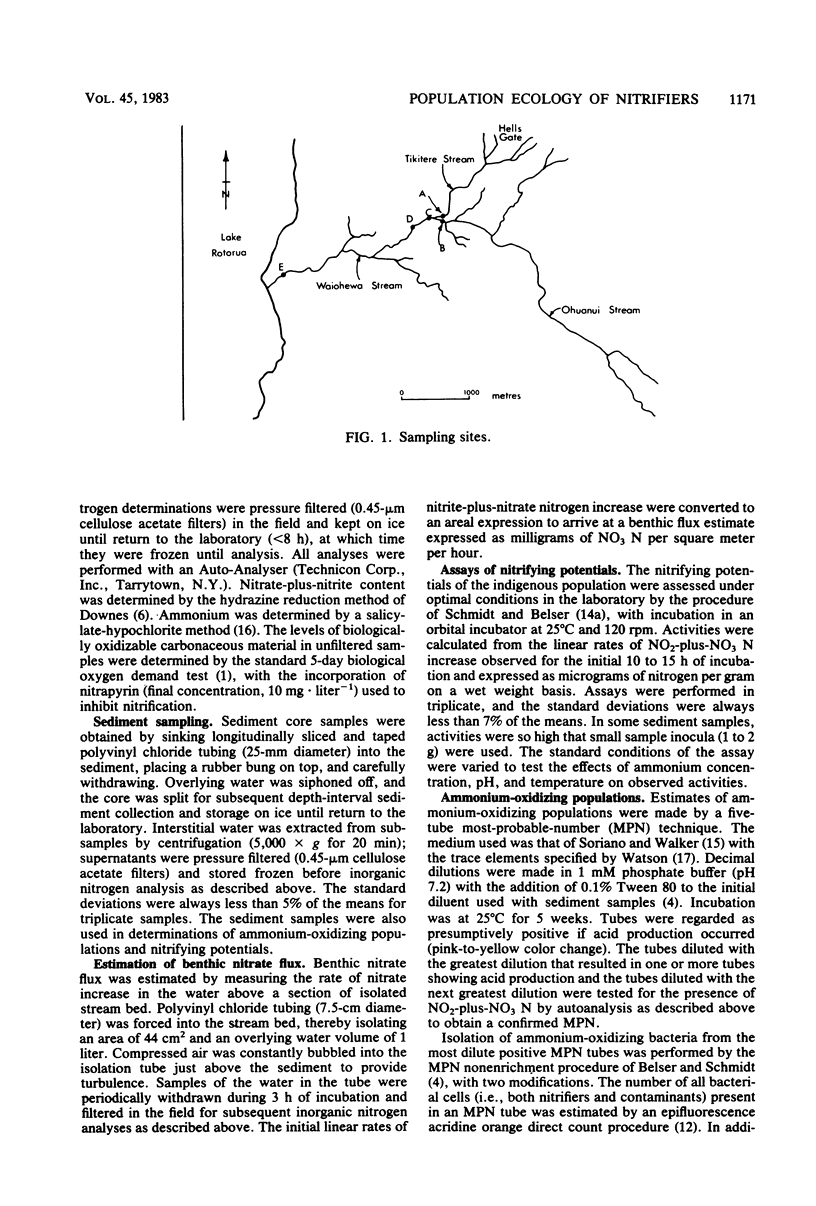
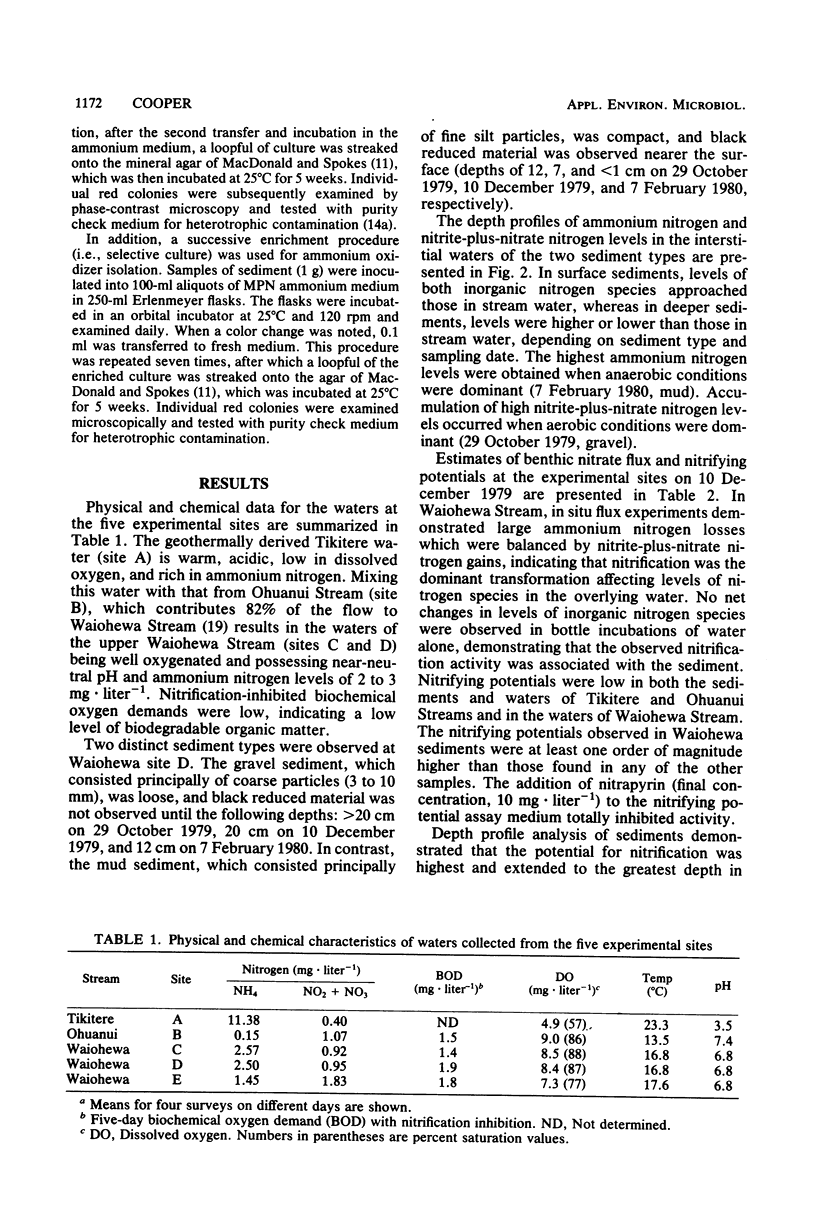
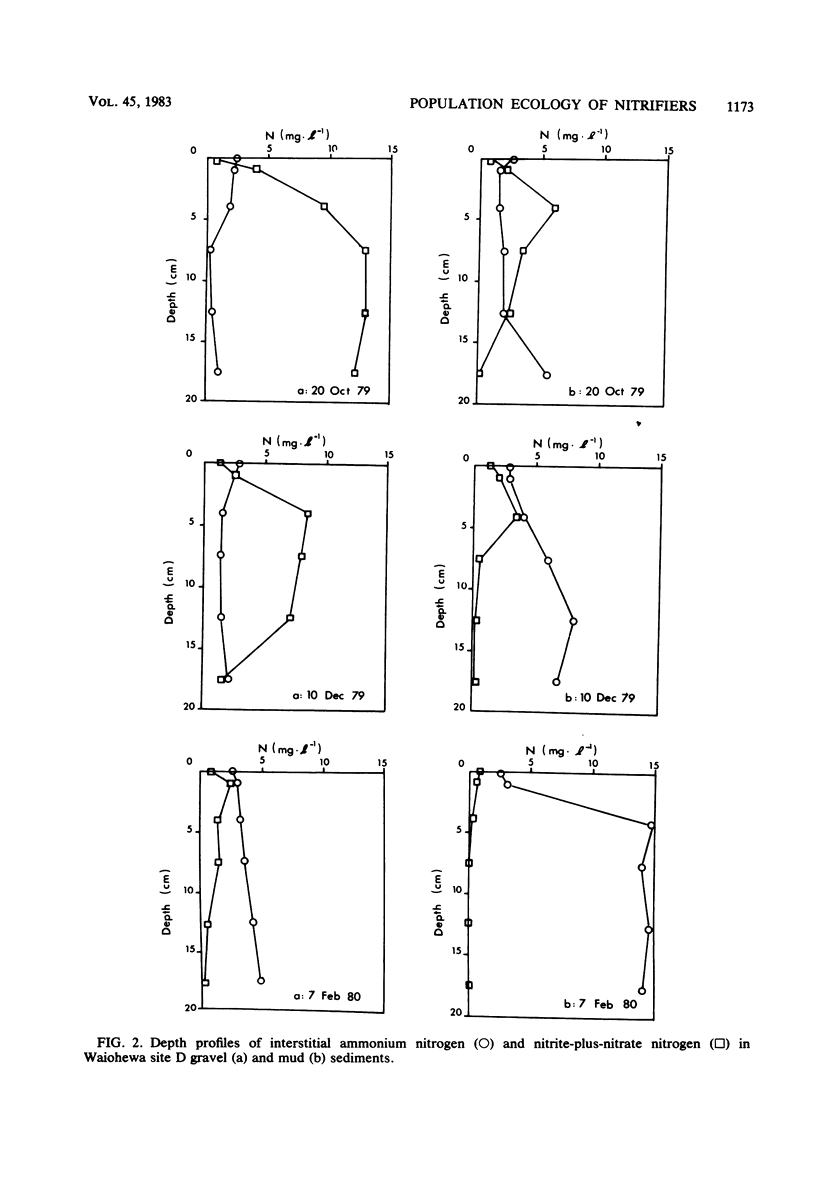
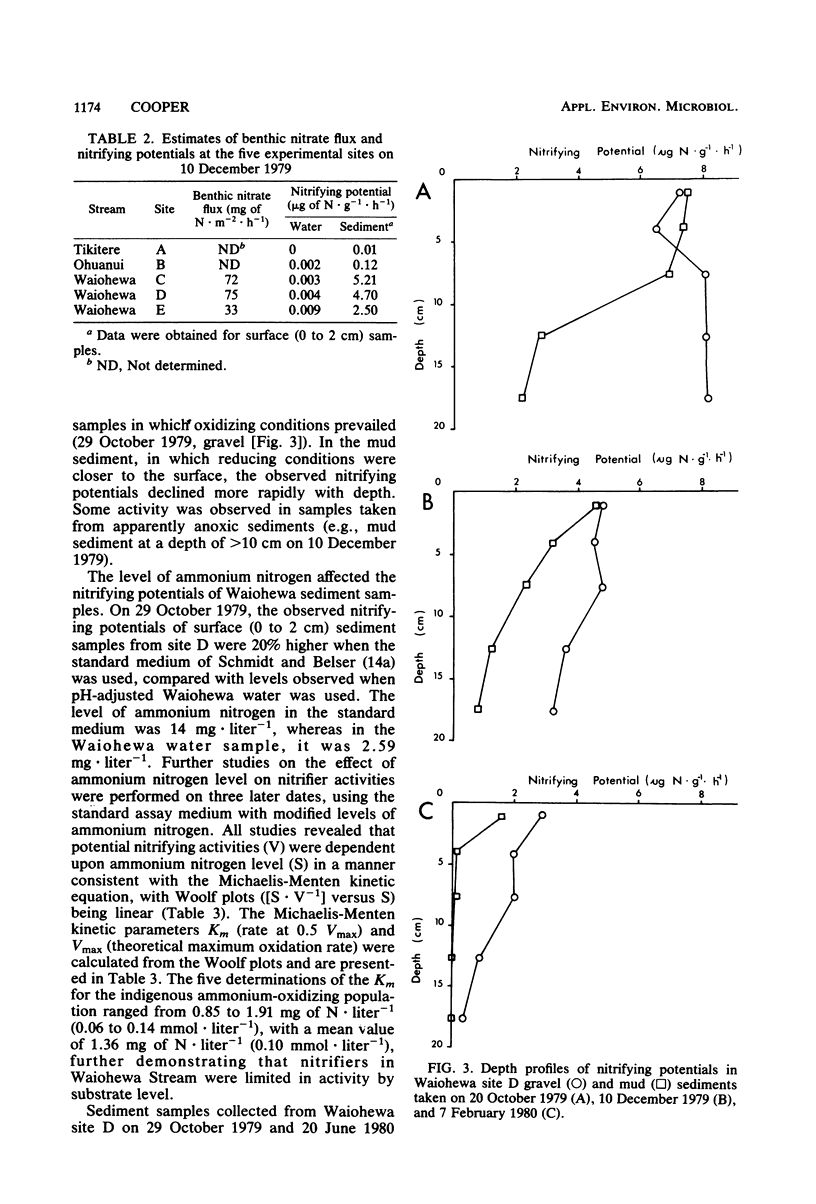
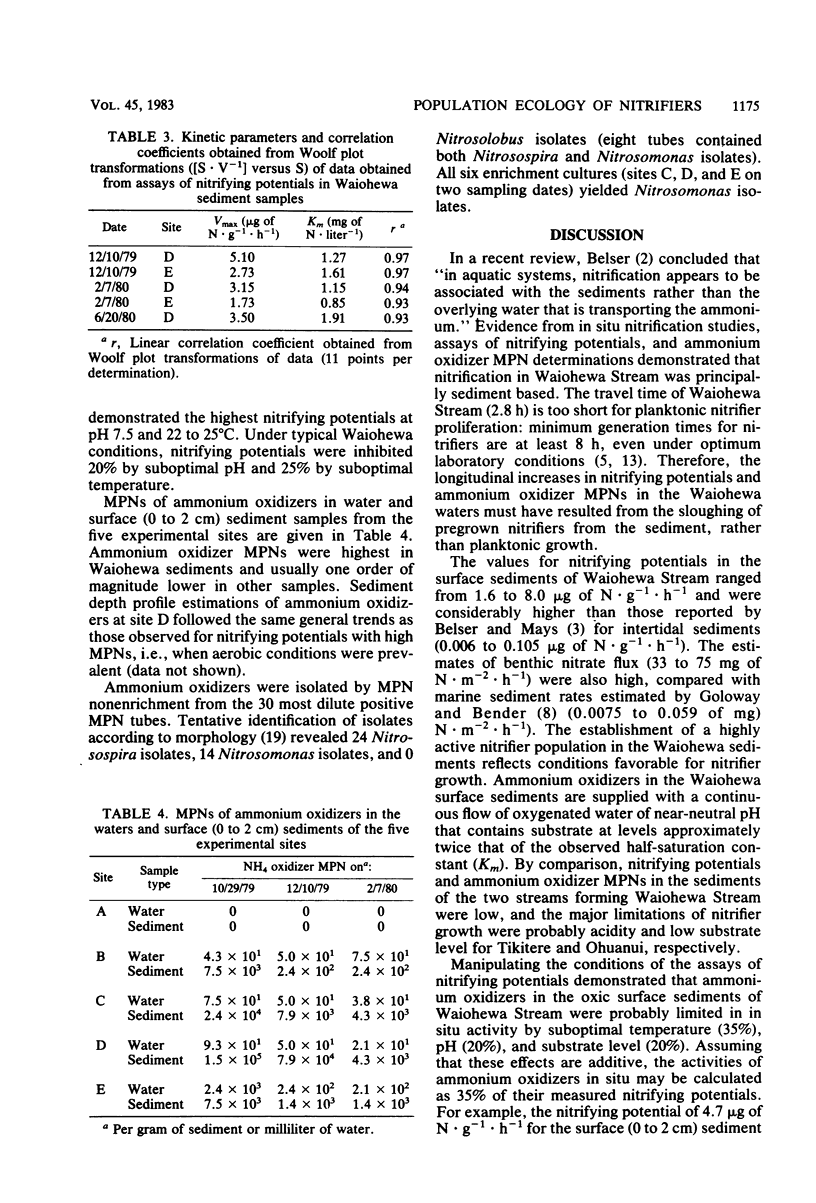
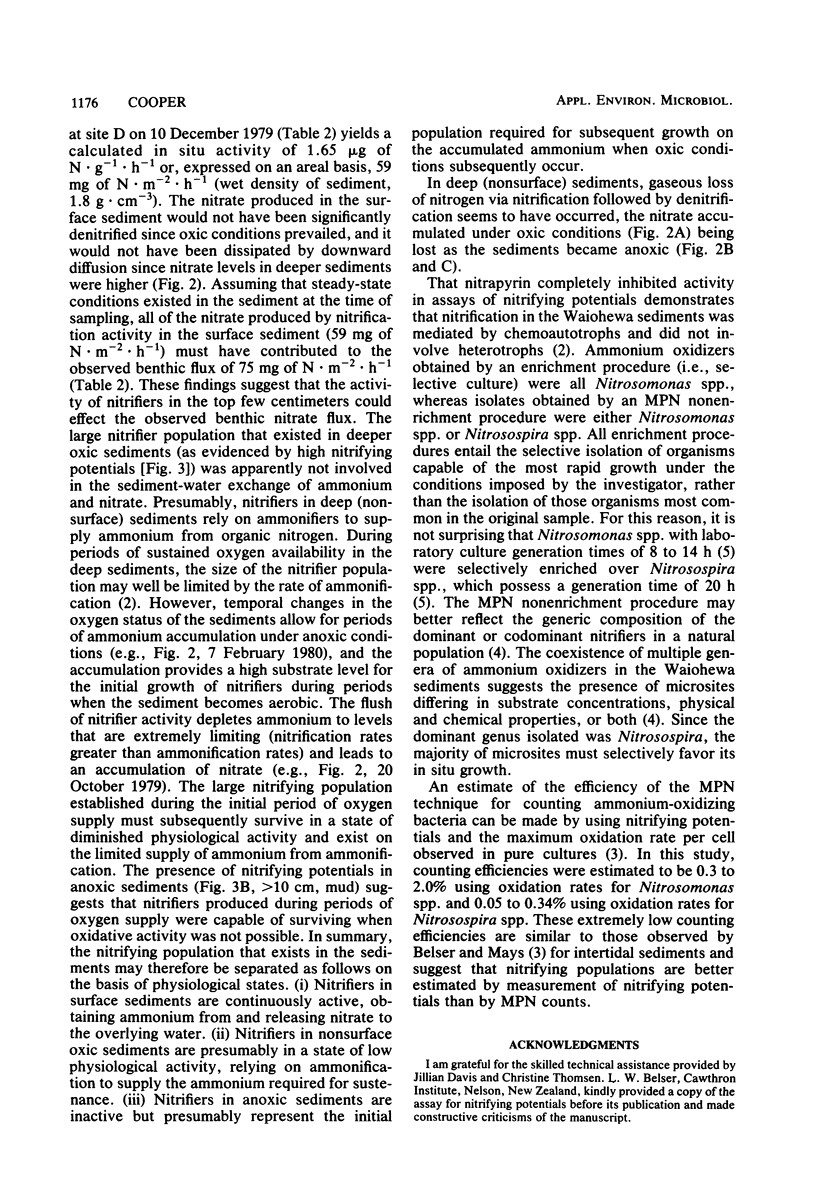
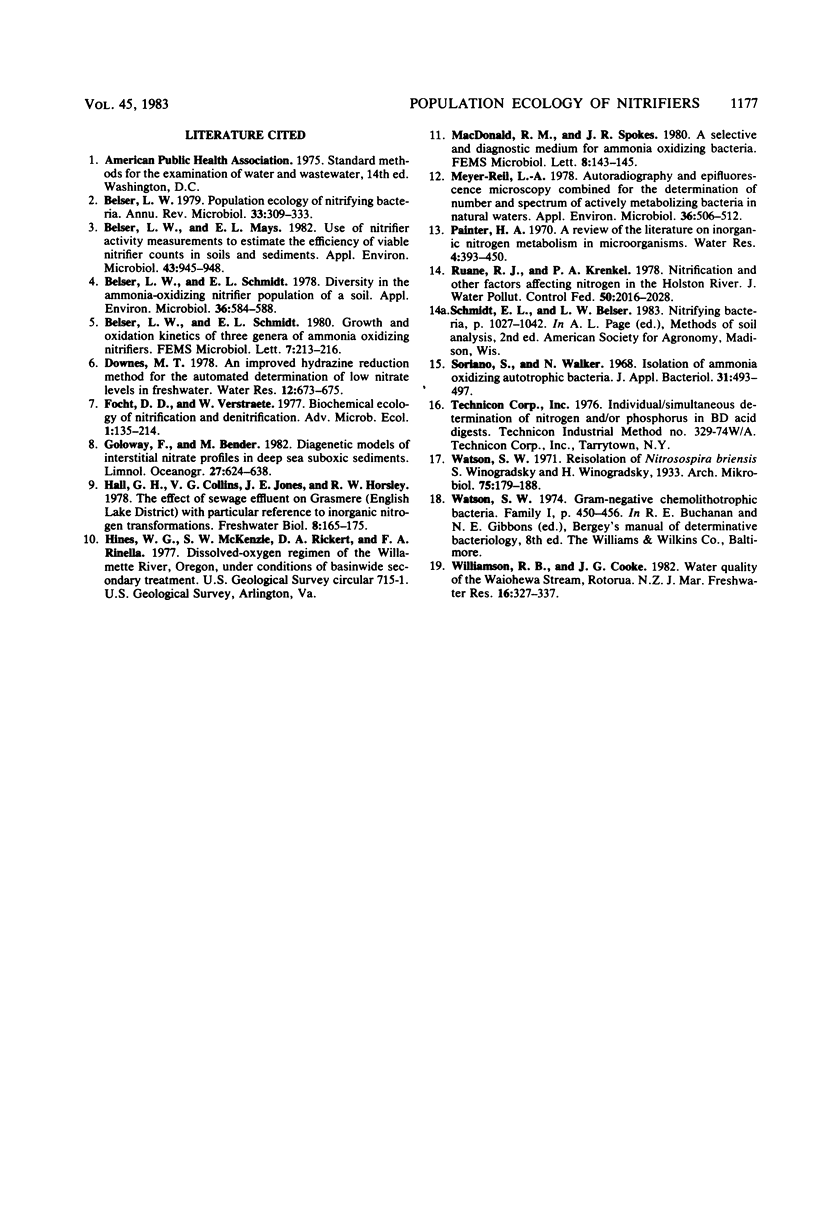
Selected References
These references are in PubMed. This may not be the complete list of references from this article.
- Belser L. W., Mays E. L. Use of nitrifier activity measurements to estimate the efficiency of viable nitrifier counts in soils and sediments. Appl Environ Microbiol. 1982 Apr;43(4):945–948. doi: 10.1128/aem.43.4.945-948.1982. [DOI] [PMC free article] [PubMed] [Google Scholar]
- Belser L. W. Population ecology of nitrifying bacteria. Annu Rev Microbiol. 1979;33:309–333. doi: 10.1146/annurev.mi.33.100179.001521. [DOI] [PubMed] [Google Scholar]
- Belser L. W., Schmidt E. L. Diversity in the ammonia-oxidizing nitrifier population of a soil. Appl Environ Microbiol. 1978 Oct;36(4):584–588. doi: 10.1128/aem.36.4.584-588.1978. [DOI] [PMC free article] [PubMed] [Google Scholar]
- Meyer-Reil L. A. Autoradiography and epifluorescence microscopy combined for the determination of number and spectrum of actively metabolizing bacteria in natural water. Appl Environ Microbiol. 1978 Sep;36(3):506–512. doi: 10.1128/aem.36.3.506-512.1978. [DOI] [PMC free article] [PubMed] [Google Scholar]
- Soriano S., Walker N. Isolation of ammonia-oxidizing autotrophic bacteria. J Appl Bacteriol. 1968 Dec;31(4):493–497. doi: 10.1111/j.1365-2672.1968.tb00397.x. [DOI] [PubMed] [Google Scholar]
- Watson S. W. Reisolation of Nitrosospira briensis S. Winogradsky and H. Winogradsky 1933. Arch Mikrobiol. 1971;75(3):179–188. doi: 10.1007/BF00408979. [DOI] [PubMed] [Google Scholar]


